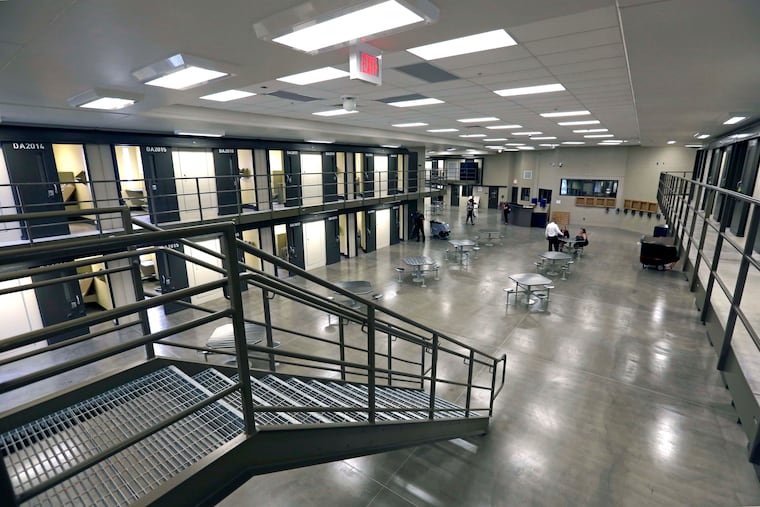Violent crime in Pa. is a problem. But it’s not a reason to end reform. | Opinion
Pennsylvanians should be wary of those who use the existence of crime to oppose desperately needed changes to the criminal legal system.

By any measure, it’s been a terrible and traumatic year.
People across the commonwealth and across the country are reeling from the pandemic, a year of lockdown, police brutality, gun violence, the election and its aftermath, and more.
What’s more, cities like Philadelphia and Pittsburgh are experiencing an increase in violent crime.
Some pundits and those who profit from mass incarceration have been quick to jump on this violence as justification for their opposition to necessary reforms to the criminal legal system and policing. Without evidence, these supporters of mass incarceration point to advocates’ calls to reduce the use of cash bail, to release vulnerable people from incarceration during the pandemic, and to demilitarize the police, among other demands, as reasons for this crime wave.
» READ MORE: Philly and Pittsburgh primaries are referendums on progressive politics | Opinion
Everyone can agree that this increase in violent crime is deeply troubling. But Pennsylvanians should be wary of those who use the existence of crime to oppose desperately needed reforms to the criminal legal system.
Because as long as crime is met primarily with incarceration instead of being treated as a public health crisis, the current criminal legal system will continue to drive crime, not prevent it.
The broken criminal legal system disproportionately impacts Black and brown communities. Whether through police harassment and violence, a probation system that can ensnare people for years or decades, the use of pretrial detention for those who simply cannot afford bail, and so much more, these policies all drive crime in these communities.
The criminal legal system doesn’t protect against crime — it accelerates crime.
For instance, Philadelphia reduced its jail population in response to COVID-19, with numbers reaching a historic low in May 2020. And 76% of those released “have remained arrest-free and less than 4% of those re-arrested are alleged to have committed an act of violence.”
Those numbers make clear that decarceration does not drive up violent crime. And the recent increase in violent crime, which predates the release from jails, shows that continuing to throw money at police departments and mass incarceration is a grave mistake. Instead, we should be investing in communities and social programs shown to reduce crime, such as job training, peer crisis services, and violence-reduction programs.
Since the murder of George Floyd last May that launched global demonstrations throughout the summer demanding an end to police violence and the structural racism at the roots of American policing, the debate around reforming the criminal legal system has quickly evolved.
Suddenly, there is real progress being made to stop police from conducting traffic stops, a situation that far too often turns deadly for motorists, particularly motorists of color.
» READ MORE: 5 ways Philly should spend stimulus dollars to curb violence | Opinion
There is powerful organizing and activism in cities and municipalities across the country that are challenging police budgets and the increased militarization of the police.
The United Nations released a damning report that condemned the city of Philadelphia for violence against peaceful protesters in the days following Floyd’s murder.
And calls to divest from the police and reinvest in communities continue to grow, with meaningful policy changes sure to follow.
These developments terrify those who profit from the status quo of overpolicing and mass incarceration. These opponents of reform will continue to flail for any excuse to stop the work of advocates and activists who have been organizing for decades to fix a fundamentally unjust and racist system. Don’t believe them.
The recent increase in gun violence is disturbing, to be sure. But doubling down on a broken system is not the answer, no matter what pundits, police profiteers, candidates for office, and some elected officials claim.
As we emerge from a difficult year of quarantining, we can’t be satisfied with a return to “normal.”
“Normal” is mass incarceration. “Normal” is deeply embedded racism in policing. “Normal” is a criminal legal system that drives crime, not prevents it.
We can, and must, do better than “normal.”
Reggie Shuford is the executive director of the ACLU of Pennsylvania.